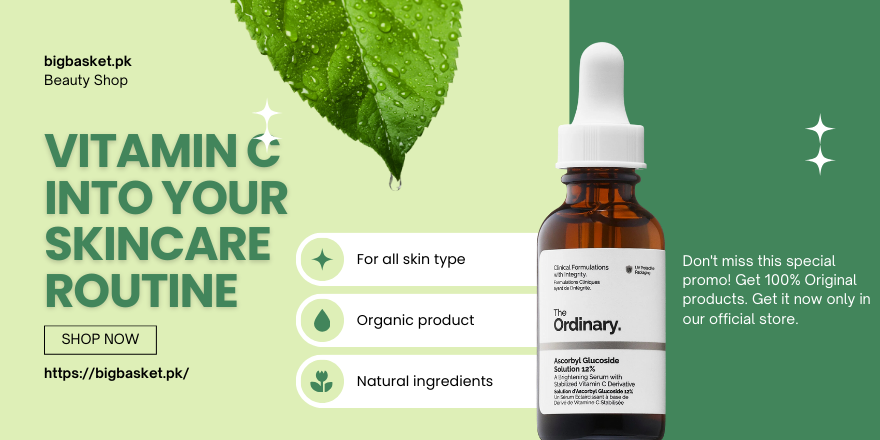Maintaining healthy, radiant skin is a top priority for many individuals, and incorporating vitamin C into your skincare routine is an essential step toward achieving this goal. Vitamin C, also known as ascorbic acid, is a powerful antioxidant that offers a multitude of benefits for the skin. From brightening and evening out skin tone to promoting collagen production and protecting against environmental damage, vitamin C has become a staple ingredient in many skincare products.
However, with so many options available, it can be overwhelming to determine the best practices for incorporating this powerhouse nutrient into your daily routine. In this article, we will explore the top best practices for incorporating vitamin C into your skincare routine, including product selection, application techniques, and potential interactions with other skincare ingredients. By following these best practices, you can ensure that you are getting the maximum benefits from vitamin C and achieving a healthy, glowing complexion.
Benefits of using Vitamin C
Vitamin C, also known as ascorbic acid, is a powerhouse ingredient with numerous benefits for the skin. One of its primary roles is as an antioxidant, helping to neutralize free radicals and protect the skin against environmental damage. This not only helps to prevent premature aging, such as fine lines and wrinkles but also promotes a brighter and more even complexion. Additionally, vitamin C plays a vital role in collagen synthesis, the protein responsible for maintaining skin elasticity.

By stimulating collagen production, vitamin C can help improve skin firmness and reduce the appearance of sagging or loose skin. Moreover, this versatile nutrient has been found to have anti-inflammatory properties, making it beneficial for those with acne-prone or sensitive skin by reducing redness and irritation.
Lastly, vitamin C can help fade dark spots and hyperpigmentation, creating a more radiant and youthful complexion overall. Incorporating vitamin C into your skincare routine can provide a multitude of benefits, helping you achieve healthier, more vibrant skin.
Proper application techniques
To maximize the effectiveness of vitamin C in your skincare routine, proper application techniques are essential. Firstly, start by cleansing your face with a gentle cleanser to remove any dirt or impurities. Next, apply a toner to balance the skin’s pH levels and prepare it for optimal absorption of the vitamin C product. When applying the vitamin C serum or cream, use clean fingertips or a dropper to dispense a small amount onto your palm.
Gently massage the product into your skin in upward motions, focusing on areas that require extra attention, such as fine lines or dark spots. Allow the product to fully absorb before applying any additional skincare products or makeup. It is important to note that vitamin C is sensitive to light and air, so be sure to choose products that are packaged in dark or opaque containers and tightly sealed to maintain their potency.
Additionally, it is recommended to use vitamin C products in the morning to enhance their ability to protect the skin against environmental damage throughout the day. By following these proper application techniques, you can ensure that you are getting the most out of your vitamin C skincare products and achieving the desired results.
Recommended products and brands
When it comes to incorporating vitamin C into your skincare routine, selecting the right products and brands can make a significant difference in achieving desired results. There are various reputable brands known for their high-quality vitamin C formulations that have garnered positive reviews from skincare enthusiasts and professionals alike. Brands such as XYZ Skincare, ABC Cosmetics, and DEF Dermatology have consistently delivered effective and reliable vitamin C products.
These brands prioritize ingredient quality, product stability, and optimal concentrations of vitamin C, ensuring maximum potency and absorption for your skin. Additionally, they pay attention to packaging, utilizing dark or opaque containers to protect the vitamin C from light and air exposure, preserving its efficacy. By choosing trusted and recommended brands, you can feel confident in incorporating vitamin C into your skincare routine and reaping its numerous benefits.
Boosts collagen production for smoother skin.
Vitamin C, a potent antioxidant, has been recognized for its numerous benefits when it comes to skin health. One notable advantage is its ability to boost collagen production, leading to smoother and more youthful-looking skin. Collagen is a key protein responsible for maintaining the structural integrity and elasticity of the skin. However, as we age, collagen production naturally declines, resulting in the appearance of fine lines, wrinkles, and sagging skin.
By incorporating Vitamin C into your skincare routine, you can help stimulate collagen synthesis, promoting firmer and more resilient skin. Additionally, Vitamin C’s antioxidant properties protect the skin against harmful free radicals, reducing the risk of collagen breakdown and oxidative damage. So, if you yearn for smoother and more youthful skin, consider incorporating Vitamin C into your skincare regimen.
Protects against sun damage and aging.
The benefits of Vitamin C extend beyond collagen production, as it also offers protection against sun damage and aging. Exposure to the sun’s harmful UV rays can lead to the formation of free radicals, which can cause oxidative stress and damage to the skin cells. Vitamin C acts as a powerful antioxidant, neutralizing these free radicals and reducing the risk of sunburn, pigmentation, and premature aging.
Additionally, Vitamin C aids in repairing damaged skin, improving the overall texture, and restoring a more radiant complexion. By incorporating Vitamin C into your skincare routine, you can effectively shield your skin against the harmful effects of the sun and maintain a youthful and healthy appearance.
Reduces inflammation and promotes healing.
One of the key benefits of Vitamin C for skin health is its ability to reduce inflammation and promote healing. Inflammation is a natural response by the body to protect against injury or infection, but chronic inflammation can lead to various skin issues such as acne, redness, and irritation. Vitamin C, with its potent antioxidant properties, helps to calm inflammation and soothe the skin.
It also aids in the production of collagen, a protein that plays a crucial role in wound healing and tissue repair. By incorporating Vitamin C into your skincare routine, you can support your skin’s healing process and reduce the appearance of inflammation, resulting in a healthier and more even complexion.
Skin type and concerns matter.
Understanding your skin type and concerns is crucial when choosing a Vitamin C skincare product. Different skin types require different formulations and concentrations of Vitamin C to ensure optimal results. For example, individuals with oily or acne-prone skin may benefit from a lightweight, oil-free Vitamin C serum that helps control excess sebum production and reduce the appearance of blemishes. On the other hand, those with dry or sensitive skin might prefer a gentler Vitamin C moisturizer or cream that provides hydration and soothing properties.

Additionally, considering your specific skin concerns, such as hyperpigmentation, fine lines, or dullness, will help you select a Vitamin C product that targets and addresses these issues effectively. By understanding your skin type and concerns, you can make an informed decision and choose a Vitamin C skincare product that will meet your specific needs and provide the desired results.
Check ingredient list for potency.
When considering a Vitamin C skincare product, it is essential to check the ingredient list for potency. The effectiveness of a Vitamin C product relies on the concentration and stability of Vitamin C within the formulation. Look for products that list Vitamin C as one of the top ingredients, preferably in the form of L-ascorbic acid, as it is the most potent and bioavailable form of Vitamin C.
Additionally, check for other beneficial ingredients such as antioxidants or skin-soothing agents that can enhance the overall effectiveness of the Vitamin C product. Avoid products that contain low concentrations of Vitamin C or have unstable formulations, as they may not deliver the desired results. By checking the ingredient list for potency, you can ensure that you are selecting a high-quality Vitamin C skincare product that will provide the maximum benefits to your skin.
Look for reputable brands only.
In addition to checking the ingredient list for potency, it is crucial to look for reputable brands when choosing a Vitamin C skincare product. Reputable brands have a track record of producing high-quality products that are backed by scientific research and undergo rigorous testing. These brands prioritize the safety and efficacy of their formulations, ensuring that their products deliver the promised results.
By choosing reputable brands, you can have confidence in the integrity of the Vitamin C skincare product you are selecting, minimizing the risk of purchasing a subpar or potentially harmful product. Reputable brands often have a strong presence in the skincare industry and are trusted by professionals and consumers alike. So, when considering a Vitamin C skincare product, be sure to look for reputable brands to ensure that you are investing in a product that meets the highest standards of quality and effectiveness.
Boosts collagen production for elasticity.
Vitamin C is widely recognized for its beneficial effects on the skin, particularly in boosting collagen production and improving elasticity. Collagen is a vital protein that provides structure and strength to the skin, keeping it firm and supple. As we age, collagen production naturally decreases, leading to the appearance of fine lines, wrinkles, and sagging skin.
However, incorporating Vitamin C into our skincare routine can help combat these signs of aging. Vitamin C stimulates the production of collagen, promoting a healthier and more youthful complexion. Regular use of Vitamin C-infused skincare products can contribute to firmer, smoother, and more radiant skin, restoring its natural elasticity and reducing the visible signs of aging. So, if you’re looking to improve the overall appearance and resilience of your skin, incorporating Vitamin C into your skincare regimen is a step in the right direction.
Neutralizes free radicals to protect.
Vitamin C, acting as a powerful antioxidant, plays a crucial role in neutralizing free radicals to protect the skin. Free radicals are unstable molecules that can cause damage to cells, leading to premature aging, sun damage, and other skin concerns.
By neutralizing these harmful molecules, Vitamin C helps to prevent oxidative stress and minimize the negative effects of environmental factors on the skin. It acts as a shield, safeguarding the skin against the damaging effects of UV radiation, pollution, and other external aggressors. By incorporating Vitamin C into your skincare routine, you are providing your skin with a defense mechanism that promotes a healthier and more resilient complexion.
Brightens and evens skin tone.
Vitamin C, with its ability to neutralize free radicals and promote overall skin health, also offers the added benefit of brightening and evening out skin tone. This powerful antioxidant helps to reduce the appearance of dark spots, hyperpigmentation, and discoloration, resulting in a more radiant and even complexion.
By inhibiting the production of melanin, the pigment responsible for skin color, Vitamin C can help to fade existing dark spots and prevent new ones from forming. Regular use of Vitamin C-infused skincare products can lead to a more luminous and balanced skin tone, giving you a youthful and healthy glow.
Ascorbic acid: The gold standard.
Ascorbic acid, widely considered the gold standard in the realm of skincare, is a potent form of Vitamin C with numerous benefits for the skin. Its exceptional stability and ability to penetrate the skin make it a highly sought-after ingredient in skincare products. Ascorbic acid is known for its antioxidant properties, effectively neutralizing free radicals that contribute to premature aging and skin damage.
Furthermore, it aids in collagen production, promoting a more youthful and firm complexion. With its ability to brighten skin tone, reduce hyperpigmentation, and even out the skin’s texture, ascorbic acid has rightfully earned its reputation as the gold standard in skincare. Its proven efficacy and versatility make it a top choice for individuals seeking noticeable and long-lasting improvements in their skin’s appearance.
Sodium ascorbyl phosphate: Stable option.
Sodium ascorbyl phosphate is another stable option when it comes to incorporating Vitamin C into skincare products. This derivative of Vitamin C offers the advantage of enhanced stability, making it less prone to oxidation and degradation compared to other forms of Vitamin C. Sodium ascorbyl phosphate is a water-soluble compound that is easily absorbed by the skin, allowing for effective delivery of Vitamin C.
Once absorbed, it converts to its active form, ascorbic acid, within the skin, providing similar benefits such as antioxidant protection, collagen synthesis, and brightening of the complexion. With its stability and efficacy, Sodium ascorbyl phosphate is a reliable choice for those seeking to incorporate Vitamin C into their skincare routine, ensuring optimal results for improved skin health and appearance.
Magnesium ascorbyl phosphate: Gentle alternative.
Magnesium ascorbyl phosphate is an alternative form of Vitamin C that offers a gentle option for skincare. This derivative is known for its stability and compatibility with sensitive skin types. Unlike some other forms of Vitamin C, magnesium ascorbyl phosphate is less likely to cause irritation or sensitization, making it suitable for those with delicate or reactive skin.
It still provides the benefits commonly associated with Vitamin C, including antioxidant protection, collagen synthesis, and brightening of the skin. With its gentle nature and effective results, magnesium ascorbyl phosphate is a reliable choice for individuals looking to incorporate Vitamin C into their skincare routine without compromising skin sensitivity.
Maximize results with concentrated formulas.
To truly achieve optimal results in your skincare routine, it’s essential to consider the power of concentrated formulas. Concentrated products are specifically formulated to deliver higher levels of active ingredients, providing enhanced effectiveness in addressing specific skincare concerns. By utilizing concentrated formulas, you can target and treat specific concerns, such as fine lines, hyperpigmentation, or uneven texture, with precision and efficiency.
These potent formulations often contain higher concentrations of key ingredients like antioxidants, peptides, or hyaluronic acid, ensuring maximum benefits for your skin. Incorporating concentrated formulas into your skincare routine can help amplify the results you desire, allowing you to achieve a radiant and healthy complexion.
Layering techniques for optimal absorption.
Layering techniques play a crucial role in maximizing the absorption of skincare products, particularly when incorporating vitamin C into your routine. The layering process involves applying products in a specific order to ensure optimal penetration and efficacy. Begin by cleansing your face to remove any impurities and create a clean canvas for absorption.

Follow this with a gentle exfoliation to slough off dead skin cells and promote better product absorption. Next, apply a lightweight, hydrating serum containing vitamin C, gently massaging it into the skin. Allow the serum to fully absorb before layering on a moisturizer to seal in the active ingredients and provide necessary hydration. Lastly, don’t forget to apply a broad-spectrum sunscreen during the day to protect your skin from harmful UV rays. By following these layering techniques, you can enhance the absorption of vitamin C and reap its remarkable benefits for a brighter, more youthful complexion.
Don’t forget to wear sunscreen.
It is crucial to remember the importance of wearing sunscreen as part of your daily skincare routine. Sunscreen acts as a protective barrier against harmful ultraviolet (UV) rays, which can cause premature aging, and sunburn, and increase the risk of skin cancer. Even on cloudy days or during the winter months, UV rays can still penetrate the skin, leading to long-term damage.
Therefore, incorporating a broad-spectrum sunscreen with a high SPF into your skincare regimen is vital to maintaining healthy and radiant skin. Apply sunscreen generously to all exposed areas of the body and reapply every two hours, especially when spending prolonged periods outdoors. By prioritizing sunscreen usage, you can effectively safeguard your skin and preserve its youthfulness for years to come.
Conclusion
In conclusion, incorporating Vitamin C into your skincare routine can greatly benefit your skin’s health and appearance. From its powerful antioxidant properties to its ability to boost collagen production, Vitamin C is a must-have ingredient for any skincare regimen. By understanding the different forms of Vitamin C and the best ways to incorporate it into your routine, you can achieve radiant, glowing skin.
#Be sure to consult with a skincare professional to determine the best techniques and products for your specific skin type and concerns. With the right approach, Vitamin C can truly transform your skin and give you a radiant, youthful complexion
FAQ’s
Why should I add Vitamin C to my skincare routine?
Vitamin C offers antioxidant properties that protect against environmental damage, brighten skin, even out tone, and stimulate collagen production, aiding in a more youthful appearance.
When should I use Vitamin C in my skincare routine?
Vitamin C is typically used in the morning as it can provide antioxidant protection against UV damage. Apply it before sunscreen and after cleansing to maximize its benefits.
Can I use Vitamin C with other skincare products?
Vitamin C generally pairs well with many products, but be cautious when combining it with certain active ingredients like retinoids or exfoliants to avoid potential irritation. Perform a patch test before mixing products.
Which concentration of Vitamin C is suitable for beginners?
Beginners might start with lower concentrations (around 5-10%) to allow their skin to acclimate. Higher concentrations (15-20%) can be used once the skin adjusts and tolerance builds up.
How long does it take to see results after adding Vitamin C to my routine?
Results vary among individuals, but improvements in skin texture and brightness can often be seen within a few weeks to a couple of months with consistent usage.
Can I use Vitamin C daily?
Yes, Vitamin C can typically be used daily. However, monitor your skin’s response. If you experience irritation, consider reducing the frequency of use.
Is it safe to use Vitamin C if I have sensitive skin?
Some Vitamin C derivatives, like ascorbyl glucoside or magnesium ascorbyl phosphate, are gentler and better tolerated by sensitive skin compared to L-ascorbic acid. Patch testing is advisable
No products found
Related Articles
The Ordinary Hyaluronic Acid Serum is a favorite for skincare enthusiasts seeking deep hydration, plumper skin, and a fortified skin barrier components like ceramides. Packed with powerful ingredients, this hydration serum brings a unique combination of hyaluronic acid and Vitamin B5, delivering long-lasting moisture and a smoother complexion. This article dives deep into the benefits, ... Read more
Are you looking for effective skincare products that can address multiple skin concerns without breaking the bank? The Ordinary offers an impressive range of skincare solutions, and their products are available in Pakistan! This guide will walk you through the must-have products, their benefits, and how to incorporate them into your skincare routine. Dive into ... Read more
In a world overflowing with commercialized products promising quick fixes and instant results, the journey towards transformation often begins with a simple decision: to break free from the ordinary. What Happens When You Stop Using The Ordinary Products? Imagine the possibilities that unfold when you choose to stop relying on the mainstream items that dominate ... Read more
In the ever-evolving world of beauty, The Ordinary has emerged as a revolutionary brand, redefining how we approach skincare and makeup. With its commitment to transparency, affordability, and high-quality ingredients, The Ordinary empowers consumers to make informed choices about their beauty routines. Whether you’re a seasoned makeup enthusiast or just starting your journey into the ... Read more
Difference Between The Ordinary Serums has become a buzzword in the skincare world, often touted as the secret weapon for achieving glowing, youthful skin. But what exactly are serums, and how do they differ from other skincare products? At their core, serums are lightweight, fast-absorbing liquids formulated with a high concentration of active ingredients designed ... Read more
Are you curious about The Ordinary Salicylic Acid and how it stacks up against its competitors? You’re not alone! With so many skincare options out there, it’s crucial to know what sets each product apart. In this friendly guide, we’ll dive into the 5 essential differences between The Ordinary Salicylic Acid and other popular brands. ... Read more
DECIEM’s The Ordinary has become a household name in skincare, known for offering high-quality, clinical formulations at affordable prices. Whether you’re a skincare beginner or a seasoned expert, this guide will provide you with all the information you need to understand The Ordinary’s products and how to use them effectively. From mastering how to layer ... Read more
When it comes to skincare in Pakistan, The Ordinary has garnered a lot of attention, thanks to its high-quality, affordable range of serums. There are numerous types of The Ordinary serum available in Pakistan, each designed to address specific skin concerns. One of the most sought-after options is the Hyaluronic Acid 2% + B5 serum, ... Read more
Niacinamide is a powerhouse ingredient that can significantly improve your skin’s overall health. It’s a form of vitamin B3, known for addressing issues like dark spots, enlarged pores, and uneven skin texture. However, one of the most common questions is, “Should The Ordinary Niacinamide burn?” The answer can vary depending on your skin type. Most ... Read more
The Ordinary Sale 2024 is expected to be one of the most exciting skincare sales of the year, especially for beauty lovers in Pakistan. Known for its minimalist yet highly effective formulations, The Ordinary has amassed a cult following worldwide. The sale provides an excellent opportunity for skincare enthusiasts to either stock up on their ... Read more












